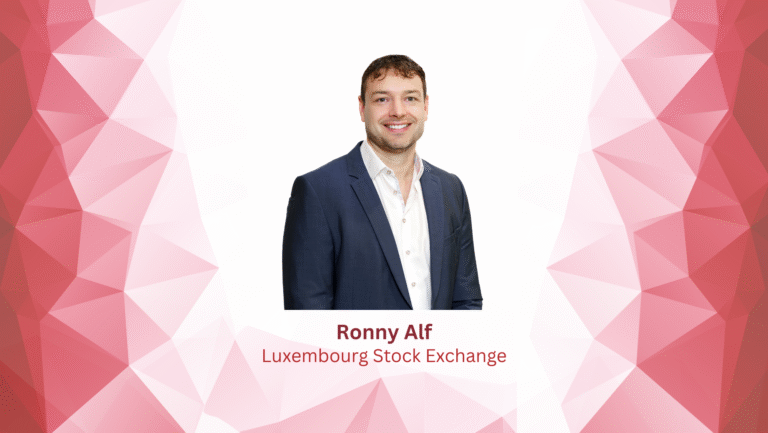Article by Fabienne Roussel, Ph.D., Analyst, and Guy Geldhof, Managing Partner at Vesalius Biocapital III Partners SàrL as featured in Insight Out Magazine #22
As a recent member joining the LPEA, Vesalius Biocapital wants to demystify the segment of Venture Capital investments in Life Sciences with the LPEA community. Allow us to share with you some trends and where we see a sweet spot for Luxembourg in the Life Sciences industry.
Did you know: investing in Life Sciences brings bigger returns than in Tech?
The Life Sciences industry is an important one in Europe. Together with the United States, Europe generates a lot of breakthrough discoveries in the medical field. Europe wide, hundreds of new Life Sciences companies are seeded and funded every year. The most promising ones receive follow-on money over several financing rounds for the clinical validation of their technology and products. Clinical validation is a rigorous and regulated multi-annual effort under the supervision of (national) health authorities. Only a handful of products will make it to the market, mostly because of issues related to safety or efficacy. But those that reach the market do reap very high rewards. At some point, innovative companies typically join forces with a big pharmaceutical company, although a few survive as independent companies.
There are many more investment opportunities in the HealthTech market, especially because of the enormous efficiency gains that can still be made.
Let us illustrate this by how the industry contributed in the context of Covid-19. Indeed, the last two years have highlighted the need to develop our capabilities to mount a strong response to a sanitary crisis which was disruptive from an epidemiological, societal and economic perspective. The pandemic, which we are still reeling from, required innovative solutions for vaccines based on new technologies that needed to be brought to the market in months rather than the usual decades. We saw that consortia were built to combine innovativeness with the capacity to develop vaccines quickly. This was only made possible thanks to long-term investments made by Life Sciences funds in companies such as BioNtech or Moderna and sustained over the years by individual and Venture Capital investors. European investments in Life Sciences, which include biotechnologies, pharmaceuticals, medical devices and digital health products received a boost and have reached EUR 14bn in 2021 and are following a similar upward trend in 2022.
Not only are massive amounts invested in European Life Sciences companies, the industry is also creating substantial financial value. It may come as a surprise to some that, over the last 10 years, Life Sciences VC funds have systematically outperformed ICT funds, be it in Europe or the US. Indeed, biotech startups’ IRR was, on average, around 7% higher than the return on classic VC investments in software and services. This is partly due to the established innovation transfer model between the funded companies and the pharmaceutical companies that acquire their exciting technology and products. We see that this model allows realizing gains faster than in ICT, where exits are more dependent on the public markets.
Nonetheless, ICT and digitalization have become an integral part of the healthcare revolution precipitated by the COVID-19 pandemic, which disrupted healthcare and its delivery models. There is little question that the future of healthcare is more digital. But digital transformation is not simply about technology, it has to do with the integration of technologies in managing changes in the paradigm of how services are delivered and how best to benefit patients and healthcare workers. The European Commission recognized this and has multiplied initiatives to support the digitalization of healthcare systems. The European Commission noted in its report of April 2018 that the uptake of digital solutions remained slow and varied greatly across, and within, member states. Nowadays, we see a quicker adoption of digital solutions.
Luxembourg’s take in digital and in VCs
While Luxembourg’s Life Sciences industry is still emerging, the country took the digital path two decades ago by taking initiatives to become a digital nation, initially in support of the financial sector, then as part of a global development strategy which includes digital health, particularly data management. It does heavily invest in setting up an ecosystem where digital health innovations thrive in order to benefit patients – including considering the reimbursement of apps (digital diagnostics & digital therapeutics) – but also in order to attract investments that will sustain the growth of the health technologies sector. And because start-ups are the engine of innovation, incubators, new investment and coaching programs were created, such as Digital Tech Fund or Fit4Start. An entire campus, the Health and Lifescience Innovation (HE:AL) Campus, dedicated to health technologies will become reality in Esch/Alzette by 2024, surrounded by the House of Biohealth (HoBH), the future Südspidol of the Centre Hospitalier Emile Mayrisch (CHEM) and the Cité des Sciences of Belval.
Over the last 10 years, Luxembourg has also seen a steady, albeit slow, growth in the number of VCs and funds invested in the region, particularly through the attraction of international funds and the strong presence of Family Offices. The positive evolution of the VC landscape is partially explained by the regulatory environment set up by the Luxembourgish authorities around Limited Partnership structures and the investments made in favor of innovation and, while a lot still needs to be done to compete with neighboring countries, we see reasons to be optimistic.
Yet, despite the investment opportunities offered by digital transformation, particularly in the health sector, the attractive dynamics of the market and the favorable environment, very few VCs in Luxembourg are targeting investments in the Life Sciences sector. As with any disruptive trend, one can embrace the changes induced by the digitalization of healthcare or be subjected to them. Vesalius Biocapital chose to be precursor in HealthTech as illustrated by its first investment in Voluntis in France already back in 2014. Voluntis is an innovative platform of digital therapeutics enhancing treatment experiences by empowering patients and their care team through personalized, algorithms-based digital therapeutics. Since then Vesalius has made several HealthTech investments.
This first investment taught us the very different dynamics of HealthTech and today the area has become much broader. It is clear that there are many more investment opportunities in the HealthTech market, especially because of the enormous efficiency gains that can still be made. By building up its framework in digital health, Luxembourg is well positioned to take its share of this emerging HealthTech sector.
The story of Vesalius Biocapitalstarted back in 2007. Since its creation, three funds have been set up with more than EUR 250 million commitments. With more than 30 investments in many European countries in therapeutics, medical devices, diagnostics and HealthTech, Vesalius Biocapital is a well-established Life Sciences and HealthTech fund. The focus is on mid-stage companies.




